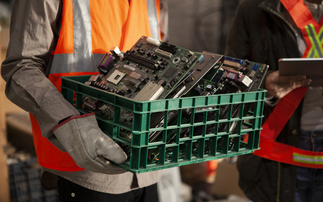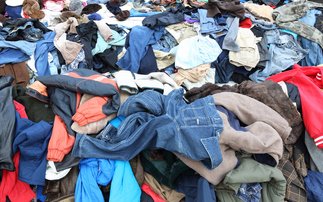Globally, waste management remains a complex issue with no straightforward solution. According to a 2014 Waste Atlas Report, almost 40% of the world's waste needlessly ends up in rubbish tips. Much...
To continue reading this article...
Join BusinessGreen
In just a few clicks you can start your free BusinessGreen Lite membership for 12 months, providing you access to:
- Three complimentary articles per month covering the latest real-time news, analysis, and opinion from Europe’s leading source of information on the Green economy and business
- Receive important and breaking news stories via our daily news alert
- Our weekly newsletter with the best of the week’s green business news and analysis





